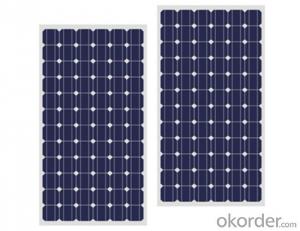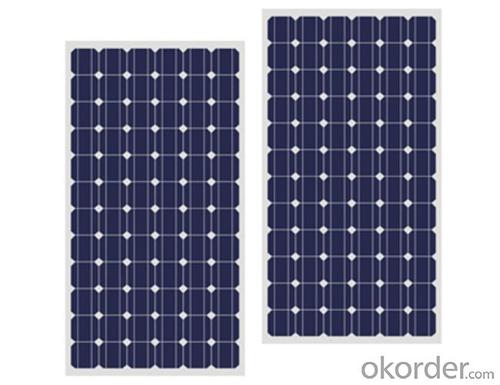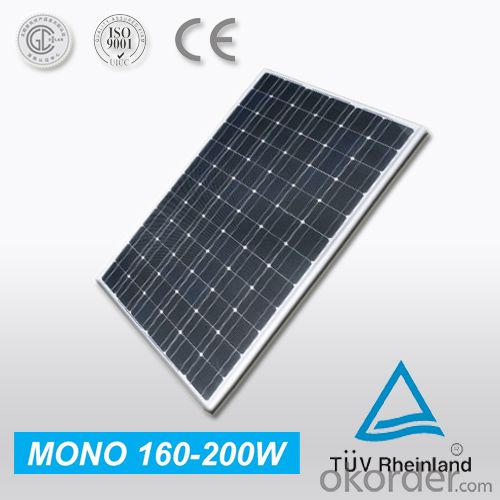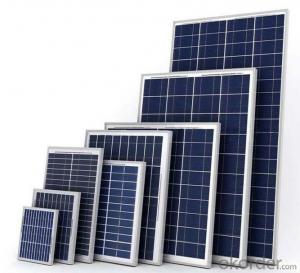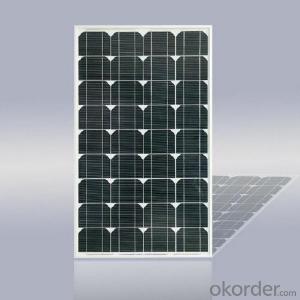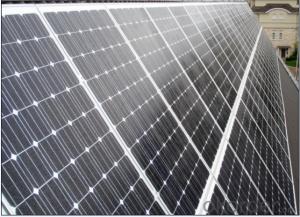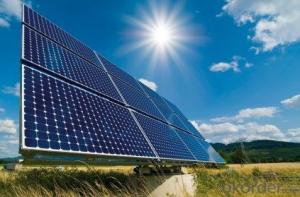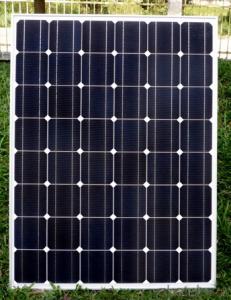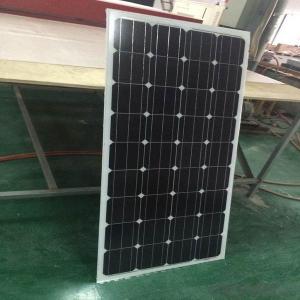OEM Mono Sun Power Solar Panels for Farm - Factory Direct Sale
- Loading Port:
- China main port
- Payment Terms:
- TT OR LC
- Min Order Qty:
- 100 watt
- Supply Capability:
- 100000 watt/month
OKorder Service Pledge
OKorder Financial Service
You Might Also Like
Solar Module Summarize
Solar Module is the core part of solar PV power systems, also is the highest value part of it. The function of Solar Module is to convert the sun's radiation to electrical energy, or transfer it to battery and store in it, or to drive the load running.
The Product has been widely used in space and ground, it mainly used for power generation systems, charging systems, road lighting and traffic signs areas. It could offer a wide range of power and voltage, and with high conversion efficiency, and long service life.
Warranty
1. 5-years limited warranty on materials and workmanship
2. 25-years limited warranty on power output: 10 years/90%, 25 years/80%
ITEM NO.: | |||||||
Maximum Power(W) | 230 | 235 | 240 | 245 | 250 | 255 | 260 |
Optimum Power Voltage(Vmp) | 29.4 | 29.5 | 29.7 | 30.1 | 30.3 | 30.5 | 30.7 |
Optimum Operatige Current(Imp) | 7.83 | 7.97 | 8.08 | 8.14 | 8.25 | 8.37 | 8.48 |
Open Circuit Voltage(Voc) | 36.7 | 36.8 | 36.9 | 37.1 | 37.3 | 37.5 | 37.7 |
Short Circuit Current(Isc) | 8.52 | 8.59 | 8.62 | 8.65 | 8.69 | 8.73 | 8.78 |
Solar Cell: | 156*156 Poly | ||||||
Number of Cell(pcs) | 6*10 | ||||||
Brand Name of Solar Cells | JA Cell, Bluesun Cell | ||||||
Size of Module(mm) | 1650*992*40/45/50 | ||||||
Cable & Connector Type | Pass the TUV Certificate | ||||||
Frame(Material Corners,etc.) | Aluminium-alloy | ||||||
Back sheet | TPT | ||||||
Weight Per Piece(KG) | 19.5KG | ||||||
FF (%) | 70-76% | ||||||
Junction Box Type | Pass the TUV Certificate | ||||||
Tolerance Wattage(e.g.+/-5%) | ±3%, or 0-3% | ||||||
Front Glass Thickness(mm) | 3.2 | ||||||
Temperature Coefficients of Isc(%) | +0.04 | ||||||
Temperature Coefficients of Voc(%) | -0.38 | ||||||
Temperature Coefficients of Pm(%) | -0.47 | ||||||
Temperature Coefficients of Im(%) | +0.04 | ||||||
Temperature Coefficients of Vm(%) | -0.38 | ||||||
Temperature Range | -40°C to +85°C | ||||||
Surface Maximum Load Capacity | 5400Pa | ||||||
Allowable Hail Load | 23m/s ,7.53g | ||||||
Bypass Diode Rating(A) | 12 | ||||||
Warranty | 90% of 10 years, 80% of 25 years. | ||||||
Standard Test Conditions | AM1.5 1000W/ 25 +/-2°C | ||||||
Packing | carton or pallet | ||||||
1*20' | 14 Pallets / 316pcs | ||||||
1*40'STD | 25 Pallets / 700pcs | ||||||
Product Details
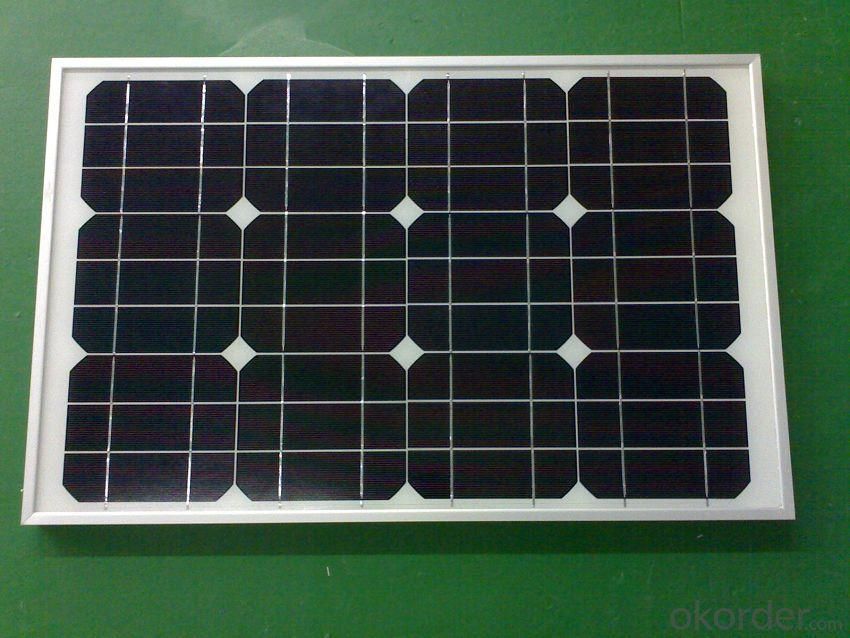
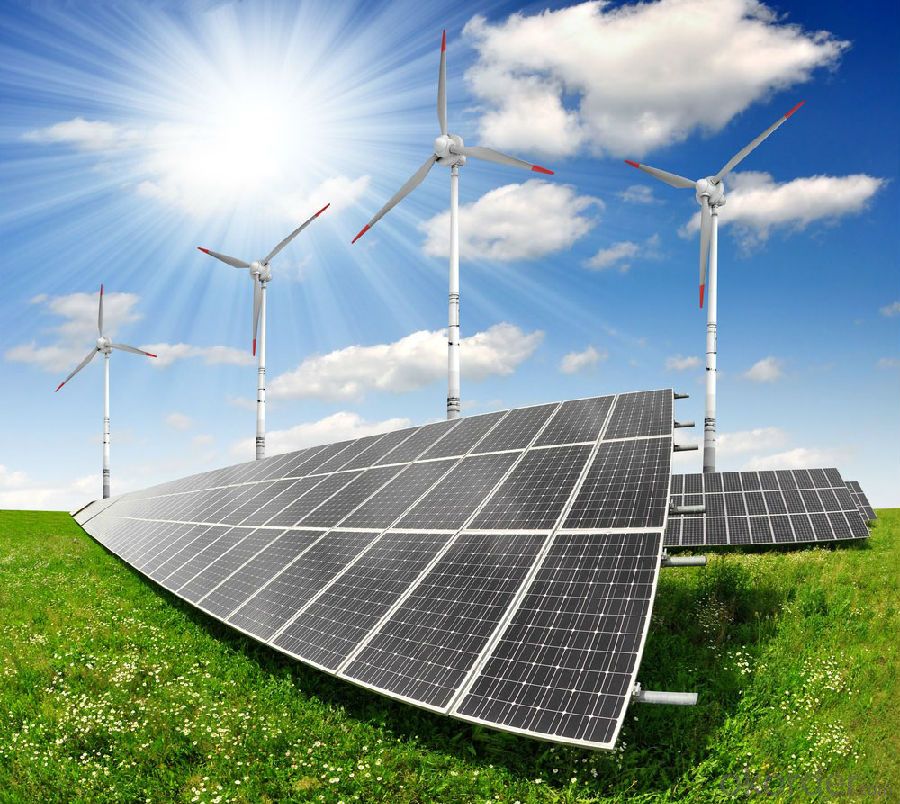
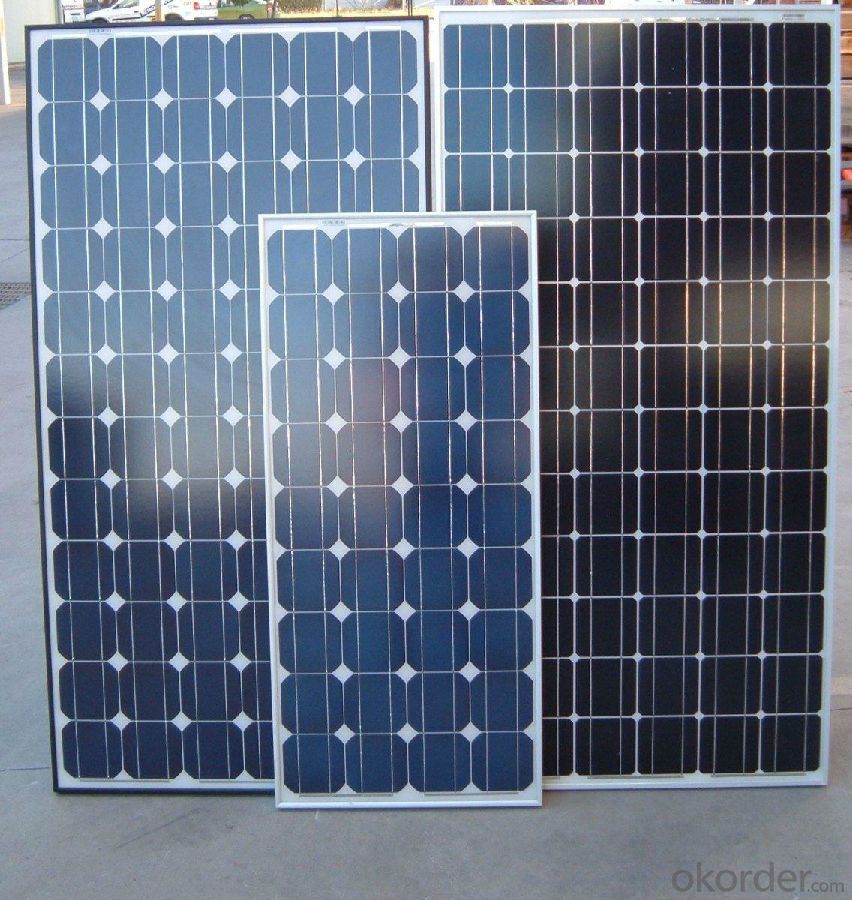
FAQ:
(1)What price for each watt?
It depends on the quantity, delivery date and payment terms.
(2)What is your size for each module? Can you tell me the Parameter of your module?
We have different series of panels in different output, both c-Si and a-Si. Please take the specification sheet for your reference.
- Q: Can solar panels be used to power a factory?
- Yes, solar panels can be used to power a factory. By installing a large number of solar panels on the factory's roof or in nearby open spaces, the generated solar energy can be harnessed and converted into electricity to meet the power requirements of the factory. This can help reduce the dependency on traditional grid electricity and also contribute towards a more sustainable and environmentally friendly operation of the factory.
- Q: . The 2v battery will only be turning a small 2v motor that will be turning very slowly yet possibly or a long time. 2. -2 hours max per day it will be running3. I want it to be fully sufficient on solar power once the energy in the battery runs out. What specifications for my panel do you think I will need. However, i have limited space so the smaller the better as long as it can do the jobP.S: I don't know much about electricity and solar power so simple answers please :)
- batteries are rated with the help of the CCA, chilly cranking Amps the better the CCa the longer it is going to very last, don,t imagine you want a charge Controller as your consistently drawing juice from it, the picture voltaic panel will keep the bat at its height , then even as the solar is down , the pump will draw off the bat,
- Q: Can solar panels be installed on military installations?
- Yes, solar panels can be installed on military installations. In fact, many military bases around the world have started incorporating solar energy systems to reduce their dependence on traditional sources of energy and enhance their sustainability efforts. Solar panels not only help to decrease the environmental impact but also provide a reliable and secure source of electricity, making them an ideal choice for military installations.
- Q: was looking at a few different sites, here is one of them
- There okorder
- Q: Can solar panels be installed on a garage or carport?
- Yes, solar panels can be installed on a garage or carport. These structures often provide ample space and a suitable angle for solar panel installation, allowing homeowners to generate clean and renewable energy while utilizing the available space efficiently. Installing solar panels on a garage or carport can also provide additional benefits such as shade for vehicles, reduced utility bills, and the opportunity to contribute to a greener environment.
- Q: Can solar panels be damaged by birds or other animals?
- Yes, solar panels can be damaged by birds or other animals. Birds may create nests under solar panels, which can cause damage to the wiring or block sunlight. Additionally, animals like squirrels or rodents can chew on the wires, potentially causing electrical issues. It is recommended to take preventive measures, such as installing barriers, to protect solar panels from such damage.
- Q: I want to know how to hook up a Solartech SPM020P-R, 20W Solar Panel to a single outlet that you can but at a store.
- That panel you reference puts out about 20W. @ 8V of DC. You can't wire that to a standard 20V outlet without a battery/inverter unit. Even then, you don't get a useful amount of power. In a full day you would collect enough energy to run a small TV for about an hour.
- Q: Can solar panels be used in areas with high levels of snow or ice?
- Yes, solar panels can be used in areas with high levels of snow or ice. However, the efficiency of solar panels may be reduced during winter months due to reduced sunlight exposure. It is important to design solar panel systems in snowy regions with proper tilt and orientation, as well as implement measures like snow removal to ensure optimal performance.
- Q: Hi,I am thinking about getting solar panels installed. # I like to cut my electric bill. #2 I like to eliminate my oil boiler and use some sort of electric boiler.I use about 5000-30000 KW per hour( winter-summer). My oil bill is around 600 month winter time. Over all i pay around 4000 a year. My electric bil now is around 2000-2500 year. Is this possible? I live in NY. I heard you can get up to $35000 rebate from LIPA( Electric company) and 2k from federal and 5k from State( is the state or federal every year?, how does that work). Any help is appreciated.
- How Solar Cells Work by way of Scott Aldous Inside This Article a million. Introduction to How Solar Cells Work two. Photovoltaic Cells: Converting Photons to Electrons three. How Silicon Makes a Solar Cell four. Anatomy of a Solar Cell five. Energy Loss in a Solar Cell 6. Solar-powering a House 7. Solving Solar-energy Issues eight. Solar-energy Pros and Cons nine. Lots More Information 0. See all Physical Science articles You've most likely visible calculators that experience sun cells -- calculators that certainly not want batteries, and in a few instances do not also have an off button. As lengthy as you have got sufficient mild, they look to paintings eternally. You could have visible better sun panels -- on emergency street indicators or name containers, on buoys, even in parking plenty to energy lighting fixtures. Although those better panels are not as ordinary as sun powered calculators, they are in the market, and no longer that rough to identify if you recognize in which to appear. There are sun mobile arrays on satellites, in which they're used to energy the electric strategies. You have most likely additionally been listening to approximately the sun revolution for the final twenty years -- the inspiration that sooner or later we can all use loose electrical power from the solar. This is a seductive promise: On a brilliant, sunny day, the solar shines roughly a million,000 watts of vigour in step with rectangular meter of the planet's floor, and if we might accumulate all of that vigour we might simply energy our houses and places of work free of charge.
- Q: i have a 50 watt 2 Volt solar panel..Will it can switch on directly a car head light on a sunny day??? How much head lights it can support on a bright sunny day??? if its cloudy then can it run a single Head light???? i have no batteries just want to connect a car Head light directly to solar panel.
- It should illuminate two auto headlights on a sunny day, if it really generates 50 watts at 2 V. On a cloudy day, I don't know. It depends on how cloudy it is.
Send your message to us
OEM Mono Sun Power Solar Panels for Farm - Factory Direct Sale
- Loading Port:
- China main port
- Payment Terms:
- TT OR LC
- Min Order Qty:
- 100 watt
- Supply Capability:
- 100000 watt/month
OKorder Service Pledge
OKorder Financial Service
Similar products
Hot products
Hot Searches
Related keywords
